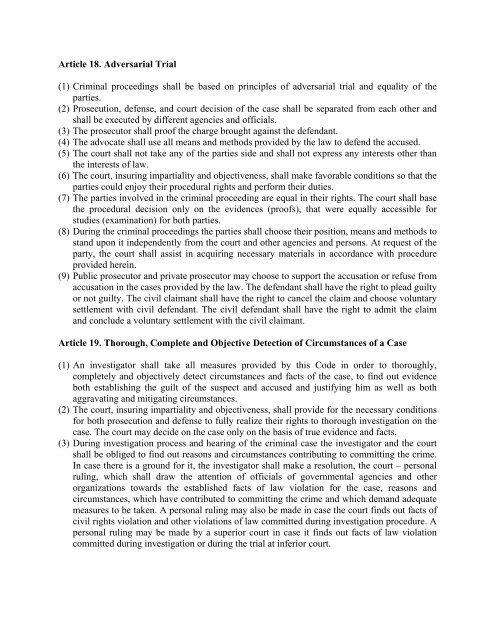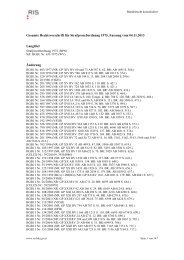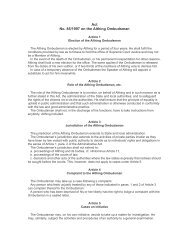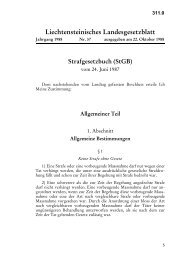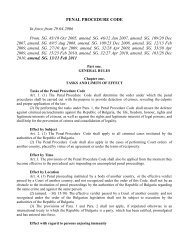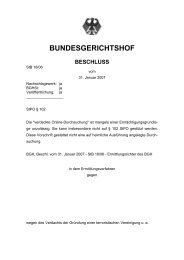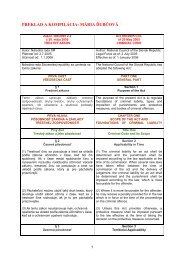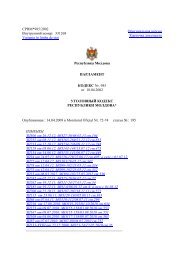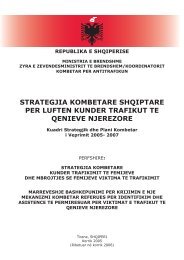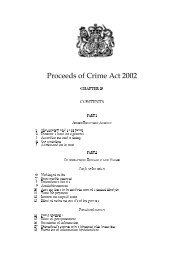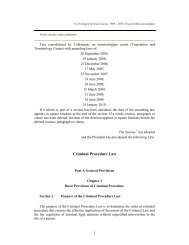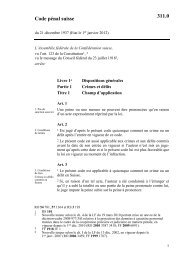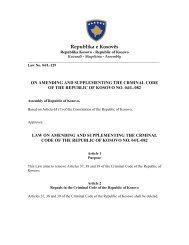Criminal Procedure Code of the Kyrgyz Republic - Legislationline
Criminal Procedure Code of the Kyrgyz Republic - Legislationline
Criminal Procedure Code of the Kyrgyz Republic - Legislationline
Create successful ePaper yourself
Turn your PDF publications into a flip-book with our unique Google optimized e-Paper software.
Article 18. Adversarial Trial<br />
(1) <strong>Criminal</strong> proceedings shall be based on principles <strong>of</strong> adversarial trial and equality <strong>of</strong> <strong>the</strong><br />
parties.<br />
(2) Prosecution, defense, and court decision <strong>of</strong> <strong>the</strong> case shall be separated from each o<strong>the</strong>r and<br />
shall be executed by different agencies and <strong>of</strong>ficials.<br />
(3) The prosecutor shall pro<strong>of</strong> <strong>the</strong> charge brought against <strong>the</strong> defendant.<br />
(4) The advocate shall use all means and methods provided by <strong>the</strong> law to defend <strong>the</strong> accused.<br />
(5) The court shall not take any <strong>of</strong> <strong>the</strong> parties side and shall not express any interests o<strong>the</strong>r than<br />
<strong>the</strong> interests <strong>of</strong> law.<br />
(6) The court, insuring impartiality and objectiveness, shall make favorable conditions so that <strong>the</strong><br />
parties could enjoy <strong>the</strong>ir procedural rights and perform <strong>the</strong>ir duties.<br />
(7) The parties involved in <strong>the</strong> criminal proceeding are equal in <strong>the</strong>ir rights. The court shall base<br />
<strong>the</strong> procedural decision only on <strong>the</strong> evidences (pro<strong>of</strong>s), that were equally accessible for<br />
studies (examination) for both parties.<br />
(8) During <strong>the</strong> criminal proceedings <strong>the</strong> parties shall choose <strong>the</strong>ir position, means and methods to<br />
stand upon it independently from <strong>the</strong> court and o<strong>the</strong>r agencies and persons. At request <strong>of</strong> <strong>the</strong><br />
party, <strong>the</strong> court shall assist in acquiring necessary materials in accordance with procedure<br />
provided herein.<br />
(9) Public prosecutor and private prosecutor may choose to support <strong>the</strong> accusation or refuse from<br />
accusation in <strong>the</strong> cases provided by <strong>the</strong> law. The defendant shall have <strong>the</strong> right to plead guilty<br />
or not guilty. The civil claimant shall have <strong>the</strong> right to cancel <strong>the</strong> claim and choose voluntary<br />
settlement with civil defendant. The civil defendant shall have <strong>the</strong> right to admit <strong>the</strong> claim<br />
and conclude a voluntary settlement with <strong>the</strong> civil claimant.<br />
Article 19. Thorough, Complete and Objective Detection <strong>of</strong> Circumstances <strong>of</strong> a Case<br />
(1) An investigator shall take all measures provided by this <strong>Code</strong> in order to thoroughly,<br />
completely and objectively detect circumstances and facts <strong>of</strong> <strong>the</strong> case, to find out evidence<br />
both establishing <strong>the</strong> guilt <strong>of</strong> <strong>the</strong> suspect and accused and justifying him as well as both<br />
aggravating and mitigating circumstances.<br />
(2) The court, insuring impartiality and objectiveness, shall provide for <strong>the</strong> necessary conditions<br />
for both prosecution and defense to fully realize <strong>the</strong>ir rights to thorough investigation on <strong>the</strong><br />
case. The court may decide on <strong>the</strong> case only on <strong>the</strong> basis <strong>of</strong> true evidence and facts.<br />
(3) During investigation process and hearing <strong>of</strong> <strong>the</strong> criminal case <strong>the</strong> investigator and <strong>the</strong> court<br />
shall be obliged to find out reasons and circumstances contributing to committing <strong>the</strong> crime.<br />
In case <strong>the</strong>re is a ground for it, <strong>the</strong> investigator shall make a resolution, <strong>the</strong> court – personal<br />
ruling, which shall draw <strong>the</strong> attention <strong>of</strong> <strong>of</strong>ficials <strong>of</strong> governmental agencies and o<strong>the</strong>r<br />
organizations towards <strong>the</strong> established facts <strong>of</strong> law violation for <strong>the</strong> case, reasons and<br />
circumstances, which have contributed to committing <strong>the</strong> crime and which demand adequate<br />
measures to be taken. A personal ruling may also be made in case <strong>the</strong> court finds out facts <strong>of</strong><br />
civil rights violation and o<strong>the</strong>r violations <strong>of</strong> law committed during investigation procedure. A<br />
personal ruling may be made by a superior court in case it finds out facts <strong>of</strong> law violation<br />
committed during investigation or during <strong>the</strong> trial at inferior court.


